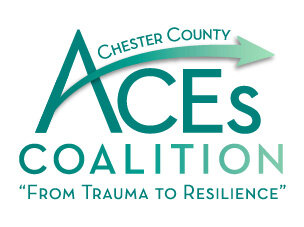
Identifying Trauma-Informed Services & Treatment
Often the Chester County ACEs Coalition is asked to identify and refer residents of Chester County to specific trauma-informed services and treatment. Without having a way to measure the services and if they are truly trauma-informed, the members of the Chester County ACEs Coalition created a list of questions to assist in empowering individuals to identify whether an agency or organization is providing trauma-informed services and treatment.
According to the issue brief entitled "Key Ingredients for Successful Trauma-Informed Care Implementation" written by Christopher Menschner and Alexandra Maul from the Center for Health Care Strategies, the four key ingredients of trauma-informed clinical practices are as follows:
1.) Involving patients in the screening process
2.) Screening for Trauma
3.) Training staff in trauma-specific treatment approaches
4.) Engaging referral sources and partnering organizations
When initiating contact with an agency or organization, consider asking the following questions to help understand and identify if trauma-informed services and treatment options are provided:
Do you involve your patients/clients in the treatment process?
For example: Do you create goals together? Do you give an opportunity for patient/client feedback and dialogue regarding the treatment process?
Has your staff received training in trauma-informed care approaches?
Examples could include Trauma-Focused Cognitive Behavioral Therapy, Eye Movement Desensitization and Reprocessing, Prolonged Exposure Therapy, Child-Parent Psychotherapy, Motivational Interviewing, Mindfulness, Peer Support Programs, etc.
Do you use trauma screening tools that are age specific?
Tools could include the ACEs Questionnaire, PEARLS, Urban ACEs, Resilience Tool, Primary Care PTSD Screening Tool, PHQ-2 or PHQ-9
Do you have a network of referral sources/partnering organizations that can provide services beyond what your organization can provide?
If so, where can I find the information?

